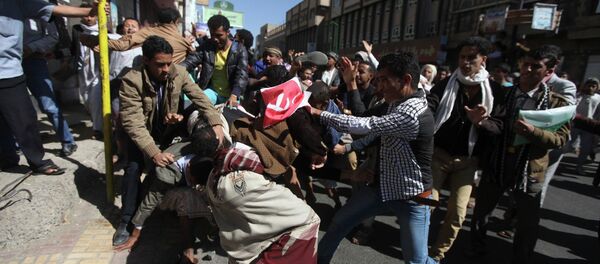"We are going to face more and bloodier conflicts in the Middle East," the journalist said, adding that neither the US, nor the West in general can prevent the upcoming bloodshed. In some cases, especially with regard to Libya and Syria, "the American and Western involvement was very detrimental and even caused the fire to burn" more fiercely, he pointed out.
The insurgency in Yemen "means terrible turbulence for the whole Middle East," according to Eskin. "In Yemen the Shiite supported by Iran took over the capital. And then, you can expect only one thing – bloodshed," the journalist said. He added that Iran will also "get into Bahrain [and] of course the Shia area of Iraq".
Eskin also added that the US was losing interest in the Middle East after becoming self-sufficient in terms of energy resources. The US partnerships with Saudi Arabia, Qatar and other Middle Eastern states were ad hoc, meaning they could not last long.
"Their real friendship with the US has nothing to do with ideology. These people do not support gay marriages that the US president spoke about so much. They do not support the same values that the American people do," he explained.


